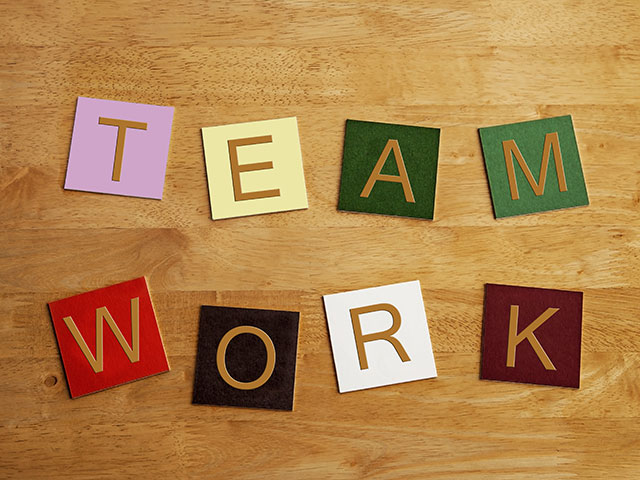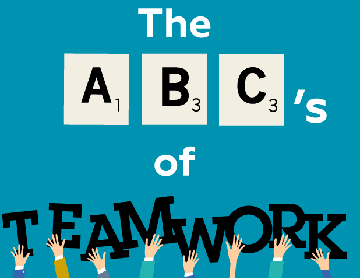To Lead or Not to Lead? Is That Really the Right Question?

Where is the leadership in our organisations? And a more important question – where is the leadership development in our organisations?
Asked for the first time in this wave of the L.E.A.D. Survey, we can now confirm that leadership development is either the most important or one of the top few strategic challenges facing our organisations. However the processes used by organisations to develop their leaders appear to be lacking and may fail to adequately prepare future leaders.
Strategic importance of leadership development
More than two-thirds of employees at all levels of organisations believe leadership development is either the most important or one of the top few strategic challenges facing their organisations:
Leaders (Executives/ Senior Managers) % | Managers (Middle Managers and Supervisors) % | Employees (Non – Managerial/ Supervisory Employees) % | |
| The most important strategic challenge for my organisation | 15 | 11 | 15 |
| One of the top few strategic challenges for my organisation | 64 | 56 | 57 |
| Just below the top few strategic challenges for my organisation | 17 | 20 | 16 |
| Not an important strategic challenge for my organisation | 3 | 8 | 4 |
Unable to rate | 2 | 5 | 8 |
Q. Which of the following best describes how strategically important leadership development is for your organisation’s future?
Leaders themselves see the strategic importance of this issue (79%) to a greater extent than Non-Managerial Employees (72%) and Middle Managers/Supervisors (67%). The prominence of the issue in the minds of Leaders highlights the importance of succession planning and the need to consistently work to develop the capabilities of emerging leaders.
Satisfaction with current leadership development processes
However, in looking to fulfil the pressing need for leadership development, it is deeply disappointing that between 21% and 41% at each level are dissatisfied with current leadership development processes used in their organisations – a sad situation given this is where leaders of the future learn necessary skills and build
their capabilities in leadership:
Leaders (Executives / Senior Managers) % | Managers (Middle Managers and Supervisors) % | Employees (Non – Managerial / Supervisory Employees) % | |
| Very satisfied | 11 | 7 | 11 |
| Quite satisfied | 55 | 49 | 61 |
| Quite dissatisfied | 23 | 34 | 17 |
| Very dissatisfied | 8 | 7 | 4 |
| Unable to rate | 4 | 4 | 7 |
Q. How satisfied are you with the leadership development processes currently used in your organisation?
It is amongst Middle-Manager/Supervisor ranks that dissatisfaction is at its greatest suggesting that development processes lack the relevance or potency needed by this next level of leaders. This result suggests they are feeling the weight of expectation but are not receiving the support to deal with that expectation.
How well does your organisation develop leaders at each of the following levels?
Reflecting the levels of dissatisfaction, there is clearly a great deal of room for improvement in the development process with just 49% to 68% at all levels believing their organisations develop leaders at all levels very well or quite well – or conversely, as many as half believing the organisation does poorly on this front:
How well do Organisations Develop Leaders? | Leaders (Executives/Senior Managers) % | Managers (Middle Managers and Supervisors) % | Employees |
| New/first time leaders | 61 | 52 | 61 |
| Next generation/emerging leaders | 61 | 54 | 63 |
| Senior/experienced leaders | 59 | 49 | 68 |
Q. In your view, how well does your organisation develop leaders at each of the following levels?
Managers in particular identify that the development process requires urgent attention in order to deliver the desired outcome.
The challenge to organisation leaders then is to identify the leadership development needs and deliver this development in a meaningful and timely fashion to protect the organisation’s future from a leadership perspective.
Leadership competencies
The recipe for developing and delivering effective leadership is reasonably simple to follow with the appropriate level of training and development. People working at all levels of organisations have a succinct and focused set of expectations that leaders can fulfil – if they put their minds to it. The main areas of focus in terms of leadership competencies expected are communication, developing and coaching others and problem solving and decision-making:
| Leadership Competencies | Employees 2016 (Rank) | Managers 2016 (Rank) | Leaders 2016 (Rank) |
| Communication skills | 1 | 1 | 1 |
| Developing and coaching others | 2 | 2 | 2 |
| Problem solving and decision-making | 3 | 3 | 5 |
| Planning and organising | 4 | 5 | 8 |
| Building relationships (external and internal) | 5 | 7 | 4 |
| Teamwork | 6 | 6 | 9 |
| Strategic thinking | 7 | 4 | 3 |
Q. Looking at this list of leadership competencies, please nominate which you believe are the five most critical competencies that leaders and senior managers need to do their job well today.
The similarity in rankings highlights that generally speaking, everyone knows what competencies make a leader effective in their role – it’s just developing and delivering those competencies consistently that many organisations struggle to do.
Leadership behaviours
Echoing the leadership competencies, many of the leadership behaviours seen from leaders – and which leaders themselves believe they exhibit – are related to core leadership competencies. There is a strong focus on communication, problem solving and decisiveness and on developing and supporting their team.
However, there are some major disconnects between what Leaders believe they exhibit most and Managers and Employees see most from their Leaders. For example, whereas Leaders believe they are most likely to exhibit motivation and bringing out the best in others, this behaviour is ranked well down in the eyes of Managers and Employees who see a strong results orientation as the most prominent behaviour shown.
Likewise, Managers and Employees see composure and confidence from their Leaders at a far greater level than the Leaders themselves do:
| Leadership behaviours | Leaders Exhibited (Rank) | Managers Seen (Rank) | Employees Seen (Rank) |
| Motivating and bringing out the best in others | 1 | 18 | 16 |
| Developing others | 2 | 17 | 7 |
| Being supportive | 3 | 4 | 3 |
| Operating with a strong results orientation | =4 | 1 | 1 |
| Solving problems effectively | =4 | 6 | 4 |
| Remaining composed and confident in uncertainty | 6 | 2 | 2 |
| Facilitating group collaboration | 7 | 14 | 17 |
| Developing and sharing a collective mission | 8 | 11 | 6 |
| Championing desired change | =9 | 9 | 11 |
| Role modelling organisational values | =9 | 13 | 14 |
| Keeping groups organised and on task | 11 | 5 | 5 |
| Communicating prolifically and enthusiastically | =12 | 7 | 13 |
| Seeking different perspectives | =12 | 8 | 12 |
| Fostering mutual respect | 14 | 20 | 19 |
| Making quality decisions | 15 | 12 | 9 |
| Clarifying objectives, rewards and consequences | 16 | 16 | 10 |
| Recovering positively from failures | 17 | 10 | 15 |
| Offering a critical perspective | =18 | 3 | 8 |
| Giving praise | =18 | 19 | 18 |
| Differentiating among followers | 20 | 15 | 20 |
Q. Leaders – Looking at the list of leadership behaviours below, please identify the FIVE behaviours you exhibit most as a leader/senior manager of your organisation
Managers – Looking at the list of leadership behaviours below, please identify the FIVE behaviours you see most from the leaders/senior managers in your organisation
Employees – Looking at the list of leadership behaviours below, please identify the FIVE behaviours you see most from the leaders/senior managers in of your organisation
What does this mean for existing leaders and leadership development generally?
The great news is that we know what is expected from our leaders. We also know that developing leaders is fundamental to creating sustainable organisations. And we know what competencies and behaviours demonstrate effectiveness in the role.
So existing leaders need to work hard to fulfil the expectations people have about your leadership and ensure it impacts on them positively. Thinking about and acting in accordance with the competencies expected of you will help develop quality leadership and quality leaders for the future. Given the critical importance of leadership development, you owe it to the next generation of leaders to do it well, be the example they should follow and help them to learn how to do it better in future – not just do what it takes to retain the formal leader role or title.
Download the latest L.E.A.D. Survey Whitepaper to find out more.






